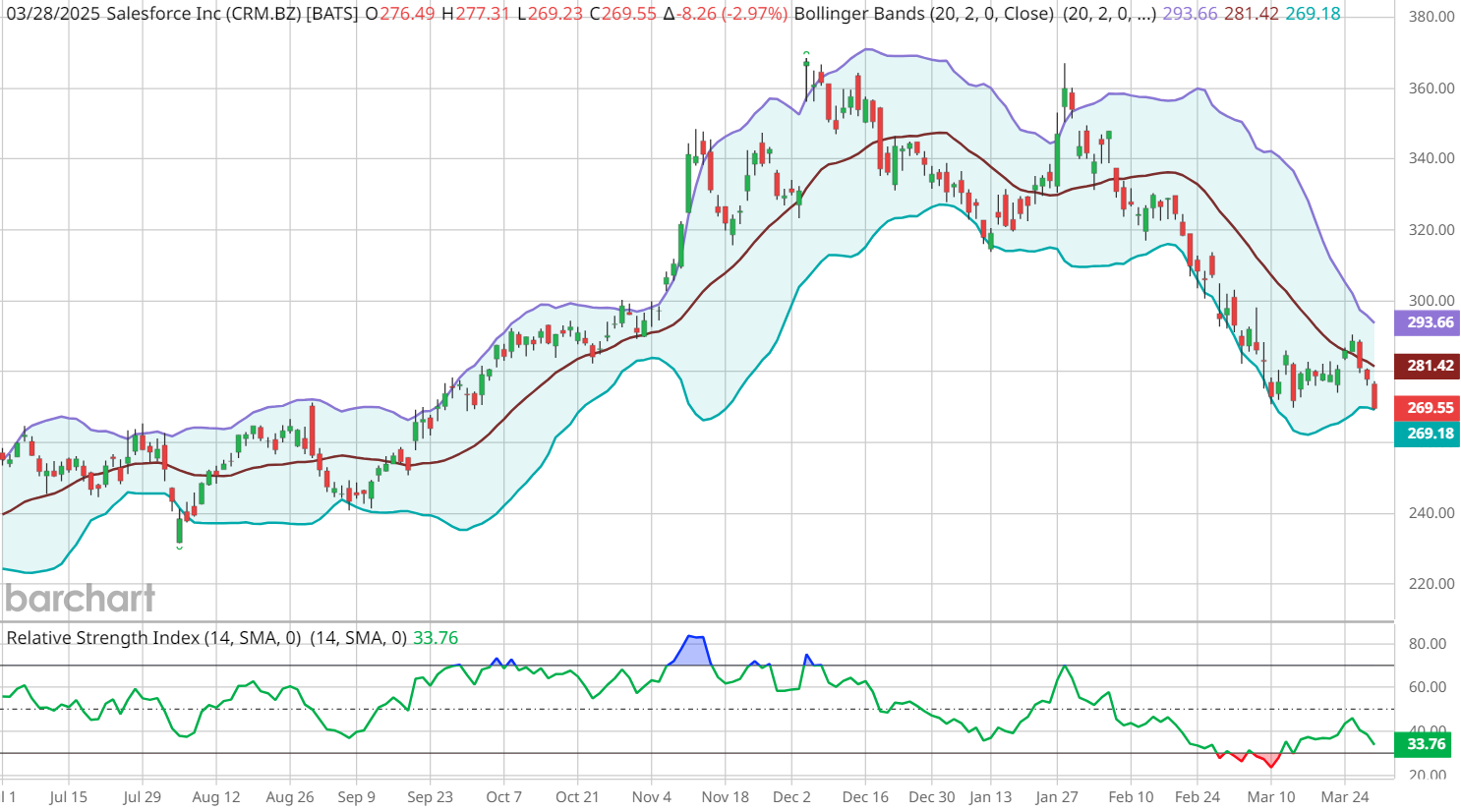
After the dust settled on Friday’s bearish session, Salesforce (CRM) stood out as the worst-performing stock in the Dow Jones Industrial Average ($DOWI) for 2025, edging out its fellow mega-cap technology peer Nvidia (NVDA) as the index’s biggest laggard of the year so far.
CRM stock has now tumbled 19.25% on a year-to-date basis, and the shares are down 10% over the past 52 weeks. The combination of these factors has led to a negative weighted alpha of -12.07, indicating significant underperformance compared to the broader market.

Here are three key reasons why CRM is underperforming the broader Dow:
#1. Slower Revenue Growth
The first major reason is the slower-than-expected revenue growth, with projections showing only a 6.6% year-over-year increase to $9.74 billion for the current quarter, which is considerably lower than the company's historical five-year revenue growth rate of 121.63%.
#2. AI Adoption Concerns
Secondly, while Salesforce has made substantial investments in its AI platform Agentforce, the uncertain pricing models and hesitancy from customers to fully deploy the technology are creating headwinds for the company's growth trajectory.
#3. Broad-Market Headwinds
The third significant factor contributing to the stock's underperformance is the broader market skepticism about high-valued technology stocks in 2025, particularly given rising anxiety over trade tensions and mixed economic signals.
Is the Selling in CRM Stock Overdone?
While Salesforce maintains a strong market position with its wide economic moat in enterprise software, investors are currently concerned about the company's ability to maintain its historical growth rates. The market's current skepticism about CRM’s growth prospects and AI monetization strategies continues to weigh heavily on the stock.
The steep year-to-date pullback has occurred despite Salesforce maintaining strong institutional ownership at 80.43%. Unlike some other growth-fueled tech stocks, the company has also demonstrated its commitment to shareholder returns through a 4% dividend increase to $0.42 per share.
CRM's transition period in adapting its AI strategy and pricing models, combined with broader market headwinds, has created a perfect storm leading to the current underperformance in 2025. However, it's worth noting that analysts remain optimistic about the company's long-term potential with a consensus “Strong Buy” rating, suggesting that current challenges may be temporary rather than structural.
What’s Next for CRM?
Technical traders should note that CRM closed Friday’s session near its lower Bollinger Band, with a 14-day Relative Strength Index (RSI) of 33.76 - on the verge of oversold territory. This suggests the stock could be overextended to the downside, which means the path of least resistance could be to the upside, at least in the very short term.





/An%20image%20of%20a%20Tesla%20humanoid%20robot%20in%20front%20of%20the%20company%20logo%20Around%20the%20World%20Photos%20via%20Shutterstock.jpg)
/A%20Palantir%20office%20building%20in%20Tokyo_%20Image%20by%20Hiroshi-Mori-Stock%20via%20Shutterstock_.jpg)
/AI%20(artificial%20intelligence)/Data%20Center%20by%20Caureem%20via%20Shutterstock%20(2).jpg)
/Tesla%20Inc%20logo%20by-%20baileystock%20via%20iStock(1).jpg)
/Quantum%20Computing/A%20concept%20image%20of%20a%20green%20and%20yellow%20motherboard_%20Image%20by%20Gorodenkoff%20via%20Shutterstock_.jpg)